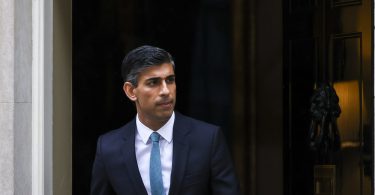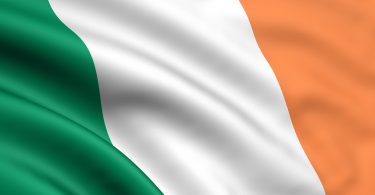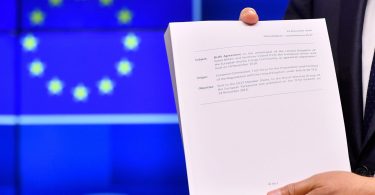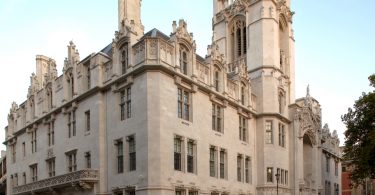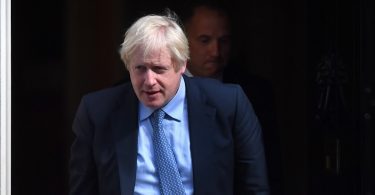by Martin Howe QC, 25th July 2017
Brexit is happening, but the big question now is: “What kind of Brexit?” Should we seek to stay in the EU’s Customs Union and/or its Single Market, as the Liberal Democrats, some Labour MPs and Scottish and Welsh Nationalists propose, or instead seek a wide and deep Free Trade Agreement as the Government and the Labour front bench propose?
There are clear and very important differences between these kinds of arrangements, which profoundly affect the future of the country. But these differences are not well understood by the public, by parts of the media — and indeed, we suspect, by a number of politicians who are expressing views on the subject. So we hope that this guide will help public understanding of the pros and cons of the different arrangements and allow voters to make an informed choice.
The EU Customs Union -staying in after exit
The effective choice is between seeking to stay in the EU Customs Union or, on the other hand, seeking a Free Trade Agreement with the EU. (Nobody is proposing as an alternative not seeking either of these arrangements and just trading with the EU under “Most Favoured Nation” WTO rules with tariffs, although this is the fallback if it does not prove possible to reach an agreement with the EU). Either Customs Union or FTA alternative would result in there being no tariffs levied on goods exported from the UK into the EU or on EU goods exported to the UK. So, understandably, many people are not able to say what the difference is between these alternatives and therefore what the pros and cons of these alternatives are.
In fact, although both solutions lead to the end result of zero tariffs on trade between the UK and EU, they achieve this by different mechanisms. The Customs Union approach dispenses with customs controls at the internal borders within the Customs Union, but can only achieve this by requiring every member of the Customs Union rigidly to apply the identical tariffs and the identical non-tariff customs controls on imports from outside the Customs Union. This means that the UK would not be free to set its own tariffs at levels which suit our own economy and trading interests, but would have to implement across the board a tariff schedule set for the benefit of EU industries: for example, we would be required to impose a 16% tariff on oranges in order to protect the interests of Spanish orange growers. Further and even more importantly, continued membership of the EU customs union would prevent the UK from entering into its own trade agreements after Brexit, because we would be prohibited from offering the tariff reductions or zero tariffs which are an essential part of any trade deal.
On the other hand, a Free Trade Agreement operates by granting zero-tariffs to goods which originate within the parties to the FTA. But to do so it is necessary to operate customs controls at the internal borders between the members of the FTA in order to check that the goods do originate within the FTA member and so are entitled to the zero-tariff concession. Otherwise an importer could channel goods from the rest of the world via the FTA member with the lowest external tariffs and then circulate them across internal borders within the FTA. It can be seen that customs controls at the internal borders of an FTA are a necessary consequence of the freedom which an FTA gives to its members to operate independent trade policies with regard to external countries.
So the basic choice offered is between Customs Union membership, which prevents trade agreements with outside states and would require the UK to follow and apply EU tariffs upon which it would have no vote and which would not be set in the UK’s interests, and a Free Trade Agreement which would involve some form of customs controls between the UK and the EU. However, customs controls do not necessarily require old-fashioned physical customs posts staffed by customs officers in peaked caps rummaging through consignments of imported goods. There are a number of ideas for “frictionless” and “virtual” borders involving electronic clearance of goods which have been developed for example at the Sweden-Norway and USA-Canada land borders – both instances where the parties are in an FTA but not in a customs union. These ideas are particularly relevant to the strong desire on all sides to avoid physical customs controls on the Northern Ireland-Irish Republic land border.
Quite apart from economic questions, continued membership of the EU Customs Union would impose serious legal and constitutional restrictions on the UK as compared with an FTA. These are:
1. As a member of the EU Customs Union, the UK would be obliged to operate a system of external tariffs according to the Common Customs Tariff decided by the EU, and would be obliged to follow all future changes made to the Common Tariff, while not having a vote on those changes.
2. The UK would not be allowed to enter in to trade agreements involving reduced or zero tariffs with non-Member countries, which would make it impossible to conclude meaningful trade agreements. The UK would also be effectively obliged to follow the terms of trade agreements reached by the EU with non-Member countries or blocs, without having a vote on those agreements or on how they are negotiated. It is hard to see what useful purpose would be served by having a Department of International Trade.
3. The UK would be obliged, either directly or via an indirect mechanism similar to that of the EFTA Court under the EEA Agreement, to remain bound by past and future decisions of the ECJ on the interpretation of the common rules of the Customs Union.
4. If the continuing customs union with the EU extends to non-tariff customs controls (such as certification of compliance with technical or safety standards, health requirements for food, etc) the UK would be obliged to follow the EU’s future rule changes on all these matters as well as interpretations of the rules by the ECJ.
5. Having to follow the EU’s common rules on such non-tariff customs controls would (1) mean that the UK would be unable to negotiate changes to such controls with non-Member countries in order to facilitate trade with them and (2) make it in practice very difficult indeed for the UK to change its own rules for goods in its domestic market to differ from those applicable to imported goods under the Customs Union common rules.
6. Trading with the EU after exit under a Free Trade Agreement (FTA) would not entail tariffs but would entail customs controls between the UK and EU in order to check that goods originate within the parties to the FTA and so are entitled to the zero-tariff concession. This would entail administrative costs but these could be mitigated by modern customs procedures such as electronic pre-clearance and “virtual” border arrangements.
7. Overall, the UK would be significantly worse off than it is at present as an EU Member because it would be bound by the common rules of the EU Customs Union over wide areas of policy, be unable to operate an international trade policy independently of the EU, but have no vote on these matters. Staying inside the EU Customs Union after ceasing to be an EU Member State would necessarily entail a severe and continuing curtailment of the UK’s powers to govern itself as an independent state.
Membership of the EU Single Market
Apart from customs union membership, the next big question on which there are differing opinions is whether the UK should seek to continue to belong to the so-called Single Market. As with the Customs Union, the alternative to Single Market membership being pursued by the Government is that of seeking “a deep and special partnership including a comprehensive free trade and customs agreement.” In fact, the Labour manifesto was not totally clear on this point, since it said that Labour would replace the government’s policy “with fresh negotiating priorities that have a strong emphasis on retaining the benefits of the Single Market“. However, both the Leader and Labour’s Shadow International Trade Secretary, Barry Gardiner MP, have clarified that this would not involve the UK remaining a member of the Single Market, but rather the UK seeking to maintain maximum access to the market without actually being a member.
Here again, and quite understandably, many people – public, media and politicians – are not fully aware of what the differences would actually be between Single Market membership, and a free trade and customs agreement giving preferential access to the Single Market. Most people are aware that continued membership of the Single Market would require the UK to continue to follow the EU rules on free movement of persons. This is correct, but it is far from being the most important consequence if the UK were to remain a member of the Single Market after EU exit, and is also far from being the most damaging of those consequences.
The EU Single Market includes three non-EU Member States who are outside the customs union, namely Norway, Iceland and Liechtenstein. These are joined to the EU by the European Economic Area Agreement of 1992. Switzerland is not in the EEA and has its own separate bilateral free trade agreements with the EU.
The nature of the Single (Internal) Market
Most people do not understand that the EU Single Market operates in a fundamentally different way from a Free Trade Agreement. The Single Market’s correct name under the EU Treaties is, in fact, the “internal market”. “Internal market” is an accurate description of what the Single Market rules set out to create: a market in which rules and regulations are homogenised across all the countries in the Single Market, as if it were a market within one giant country.
By contrast, a Free Trade Agreement is concerned with regulating trade in goods and services passing between the parties to the FTA, but it does not dictate the rules and regulations which apply across the whole of the internal markets of the parties. An FTA typically will allow the parties to change the rules and regulations which apply in their respective internal markets, although typically it will require them not to discriminate – so a change in regulations must be applied equally to imported and domestic goods and services. Typically, an FTA will facilitate market access by a system of mutual recognition of the parties’ standards relating to goods and services.
The consequence of trading under an FTA is that exporters of goods and services need to comply with the standards agreed or recognised under the FTA, or failing that, with the standards in the country of destination. But those rules do not directly apply to every business in the internal market of the parties, or to businesses exporting to third countries. By contrast, belonging to the EU’s internal market means that not only goods and services exported to the EU, but the whole of the domestic economy, including also many goods and services exported to third countries, must be subject to the rules and regulations of the internal market.
Much of the public discussion about the Single Market is based on a failure to understand this simple and fundamental point. This fundamental difference has the following inevitable consequences if we stay in the EU Single Market after we exit from EU membership:-
1. Keeping three-quarters of EU laws: We would not be allowed to change our laws after exit on any of the huge range of matters covered by Single Market rules, however desirable that change might be and however much our electors were to vote for it.
2. Supranational interpretation and supervision: Those rules would be subject to rigidly harmonised interpretation and supranational enforcement by the EFTA Surveillance Authority and the EFTA Court. While we would escape the direct control of the EU Commission and the ECJ, the corresponding EFTA bodies effectively mirror their actions and decisions and would produce the same end result in terms of compulsion.
3. Obligation to follow future new EU laws and amendments: We would have to make future changes to our law to mirror any changes made by the EU to any Single Market-related legislation. The difference is that we would no longer have the right to vote on those laws, giving us the worst of all worlds. This would be particularly catastrophic for the City and financial services, where we would have no control at all over the imposition of legislation damaging to the City.
4. Continued free movement of persons: The rules on free movement persons are part and parcel of the set of rules which govern the internal market under the EU Treaties and the EEA Agreement. We would be required to maintain free movement for the indefinite future.
5. Interference with trade and trade agreements with non-EU countries: The rules of the Single Market would interfere with trade between the UK and third countries. Single Market membership would not be a complete show-stopper like membership of the EU Customs Union, but it would severely interfere with the UK’s trade agreements with third countries by preventing us from agreeing to mutual recognition of goods and services from other countries which departed from the relevant Single Market rules.
6. No right to stay in the EEA unilaterally: Contrary to ill-founded suggestions which have been made by some commentators, the UK has no right to stay automatically in the EEA after exiting from the EU. Continued EEA membership could be secured only by agreement of the EU itself, and of each EU Member State and each EEA Member State with ratification according to its own constitutional requirements. This rules out using EEA membership as a temporary refuge from exit from the EU, and would make it effectively impossible to negotiate and get ratified EEA membership on modified terms which would remove from it elements such as free movement of persons which are regarded as an important and integral part of Single Market membership in many member states.
“No Deal” with the EU
There are differences of opinion on whether to countenance “no deal” with the EU if the EU does not offer acceptable terms. Labour’s manifesto went so far as to say that it is “the worst possible deal for Britain” and that “we will reject ‘no deal’ as a viable option”. This raises the serious question of how a Labour government would respond to, for example, EU demands for ongoing payments of huge sums into the EU budget after exit and long-term hegemony of the ECJ over the rights of millions of EU citizens resident in this country (and their descendants). Having publicly signalled that “‘no deal’ is not a viable option”, it seems that a Labour government would put the country in the catastrophic position of having to accept whatever terms are offered by the EU, however bad they are.
The Manifesto positions adopted by the Liberal Democrats and the Green Party were, if it were possible, even worse, since they proposed holding a referendum in which the people would be offered the choice between accepting the deal offered by the EU and returning to EU membership. This would positively encourage the EU to offer the worst possible terms in order to induce the UK to return to membership: under conditions of supplication in which the UK could be stripped of its hard-won budget rebate and its existing opt-outs.
Martin Howe QC is Chairman of Lawyers for Britain.
from: https://lawyersforbritain.org/eu-deal-election-choice.shtml



